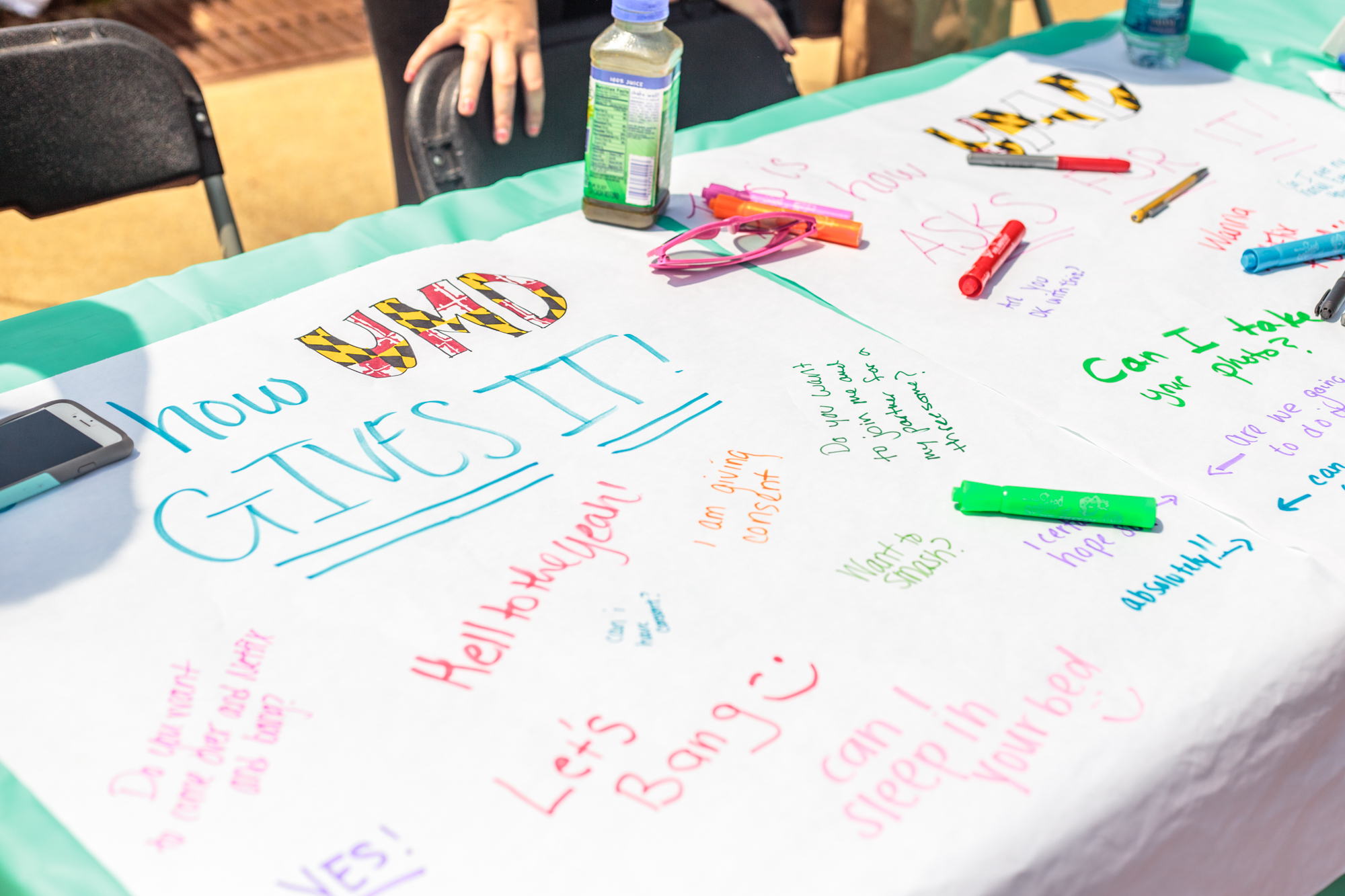Candy, condoms, stickers and lube — that’s what some members of the College Park Scholars Public Leadership program were handing out in conjunction with the Cultures of Consent organization Monday afternoon on McKeldin Mall.
Cultures of Consent, a Washington-based educational nonprofit, focuses on rape and sexual assault prevention work through consent-based education. The students of the Public Leadership reached out to the organization to come to the campus and set up booths on McKeldin Mall.
“One of the things that we were really struck by was how prevalent sexual assault is on-campus,” said sophomore Julia Mattson, a finance and information systems major. “People we’re close with, people in our own program — Public Leadership — have all been victims of sexual assault and rape, and that to us was not OK.”
Members of this University of Maryland program sought out Cultures of Consent because of their “positive spin on sex” by promoting a “culture of consent” through sex positivity, Mattson said.
The event’s theme was “We’re asking for it,” “because we all should be asking for consent and giving it,” she said.
The event featured various activities including a spin-the-bottle station, where students were quizzed on various statistics pertaining to categories of body image, porn literacy, consent and law, and could win prizes such as candy and condoms. The group also handed out a couple of t-shirts every hour.
Organizers also set up a photo booth at another station where students could write down what they’re asking for — in reference to sexual consent — on a whiteboard and pose for the group’s social media campaign.
One of the biggest obstacles in addressing issues of rape and sexual assault is the taboo society places on sex, said Liz Puloka, Cultures of Consent’s executive director. What makes Cultures of Consent different from other organizations, Puloka said, is the sex-positive ideology at the core of its mission.
“Any kind of sex that is consensual is healthy and good for you,” she said. “Which doesn’t sound too profound unless you understand it in a context of how our culture usually talks about sex, which is with a lot of shame and blame.”
The negativity around sexual behavior makes people afraid to talk about what they like and what they don’t like, she added.
“When you don’t want to talk about what you’re into, then you fall into this miasma of non-communication, and that’s where the rape and sexual assault often happens,” she said.
The Cultures of Consent campaign mainly focuses on consent-based education. Puloka compared it to sex education courses that most students are required to take in middle and high school.
Students come to this university with varying degrees of sexual education, Mattson said, and some high schools provide comprehensive sex-ed courses while others simply cover the basics, leaving many young adults without a proper understanding of consent when they enter college.
“It’s a problem with universities nationwide,” said sophomore Public Leadership scholar Tasha Powers, an education and history major. “I wouldn’t specifically say the University of Maryland has a problem more than any other university, but as a culture more of a problem.”



